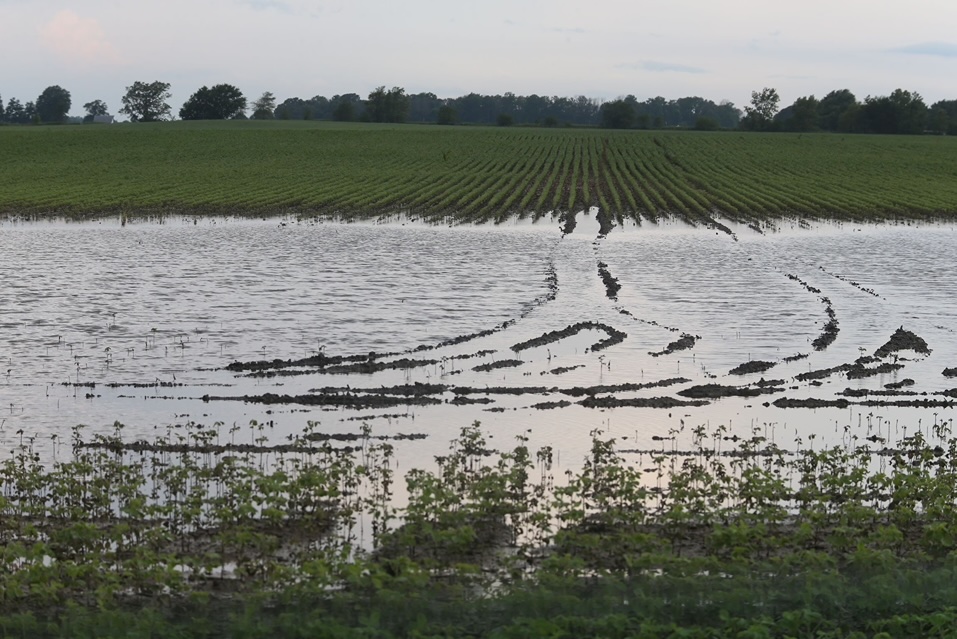Taking Advantage of Big Data

Two farmers share their approaches
Over the past several years, farmers everywhere have seen an explosion of farm data-management and analysis services. Like most of those farmers, Dennis Bogaards and Jeremy Jack wondered how they could take advantage of this new line of products.
Democratizing farm data
Bogaards farms a little over 1,000 acres near Pella, Iowa. He was trying to find a way to extract more efficiency from his relatively small operation.
Jack farms 12,000 acres near Belzoni, Mississippi. While he was also concerned about efficiencies, he was specifically looking for something to help him manage the sheer amount and variety of work required for his operation.
Bogaards heard about Farmers Business Network (FBN). The company offers members the opportunity to leverage their own data along with data from other farms. It organizes and analyzes data from all of its nearly 2,000 member farmers and shares it – anonymously – with all the other members, providing a large base of information to use in decision making.
Co-founder Charles Baron says FBN’s network of farmers is “focused on democratizing farm data.”
As a result, Bogaards has access to real-world, on-farm performance data that allows him to make more informed decisions about seed varieties, planting populations, row spacing and input applications.
He can also evaluate the financial performance of seed varieties under a wide variety of planting, weather and soil conditions. FBN’s collective of farmers has already contributed detailed yield and performance data for over 1,100 different varieties of seed.
Rather than focusing exclusively on yields, this performance data can break down the financial performance of seed varieties. In other words, Bogaards can use this data to determine if higher-yielding seeds are worth their price tags.
He likes to compare the performance of his fields with similar fields in his region, and he uses this feature as motivation to get better.
“I use FBN to look at my fields and take advantage of information I hadn’t used before,” says Bogaards. “The fact that I can compare my fields to others is a good thing. I think I kind of got complacent with some of my underperforming fields, and this motivates me to improve.”
Streamlined farm management
Over the last few years, Jack has been looking for a way to keep track of his day-to-day tasks and decisions on his farm and consulting operations.
“I needed a tool that could help me keep track of everything going on,” he says.
He found Granular, a farm-management platform. It helps him keep track of his day-to-day activities and keeps him connected with his employees, suppliers and partners.
“We’re growing six different crops,” he says. “I sometimes find it impossible to remember what I did yesterday, much less three months ago. Granular helps me stay on top of things.”
Granular CEO Sid Gorham says time savings are what many of his customers are looking for.
“We like to think we are freeing farmers from the tyranny of Microsoft Excel,” says Gorham.
Jack agrees, noting that traditional spreadsheets are cumbersome and time-consuming. With Granular, he can keep tabs on multiple facets of his operation in ways that weren’t possible before.
He thinks Granular is easy to use and makes it available for all of his employees. The software keeps track of hours worked, specific tasks completed and other management details, and it organizes all of it across multiple wireless devices.
How can you use data management on your farm?
In response to farmer needs, a large number of data-focused software and service providers have entered the marketplace in recent years. Just like Bogaards and Jack, every farmer’s situation is different, and taking the time to find the right product for your operation is critical.
Farmers who are beginning to investigate companies like these should keep a couple things in mind.
First, ask yourself what you’re trying to accomplish? There are two broad categories of companies emerging in the space at the moment: farm management and data analysis.
If you want to organize your financial and operational decision making, you might explore the category of companies that focuses on streamlining the management of your entire operation. The primary value of these products lies in saving time.
If you want to take advantage of the agronomic data that you and other farmers are already gathering, then you should explore that category of companies that performs data cleaning and aggregation. Here, the primary value lies in providing the farmer a larger amount of relevant information for decision-making
Either way, services like these are likely to proliferate in the coming years, as farmers face the combined pressures of rising input costs and low commodity prices. If the experiences of these earlier adopters are any indicator, there can be real value to be found in data management and analysis.



